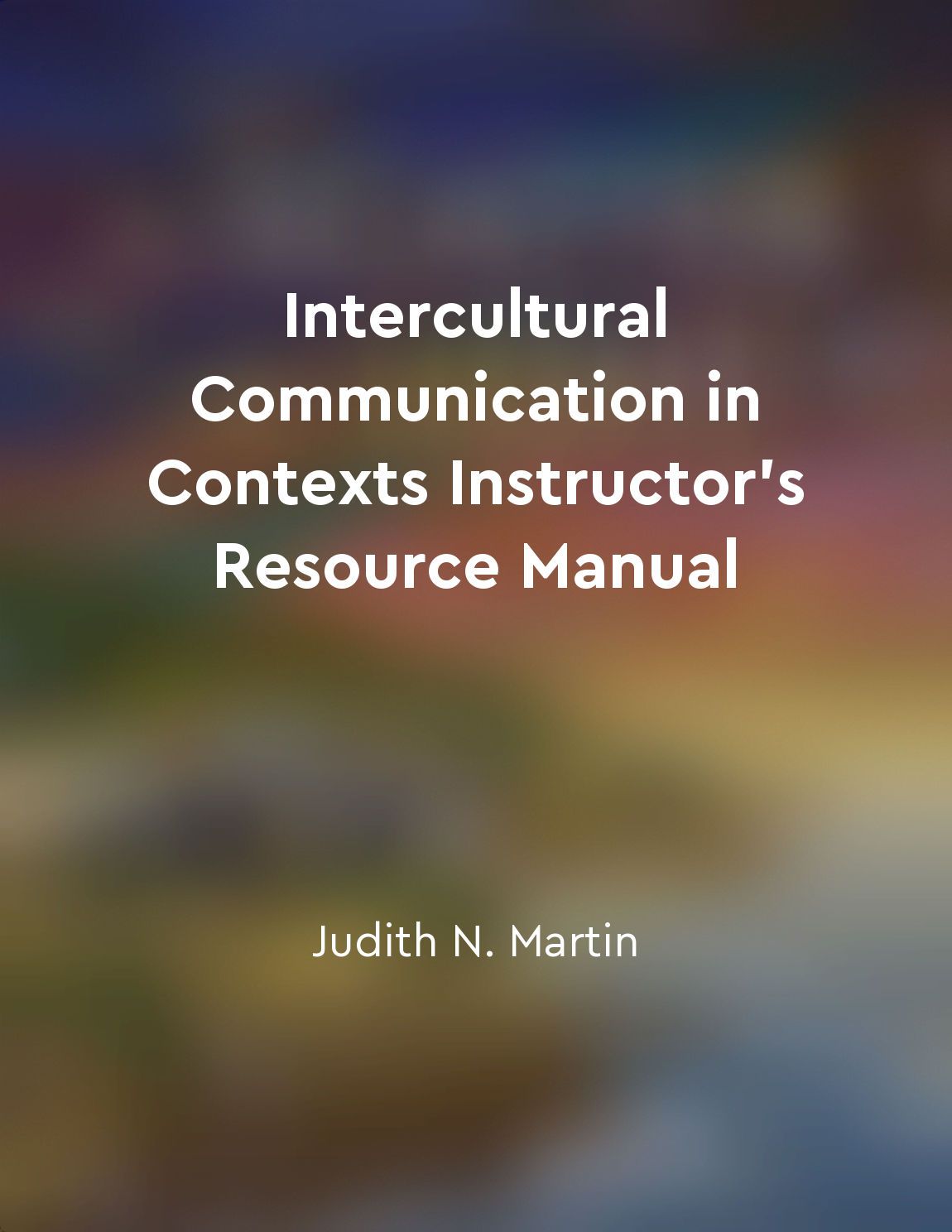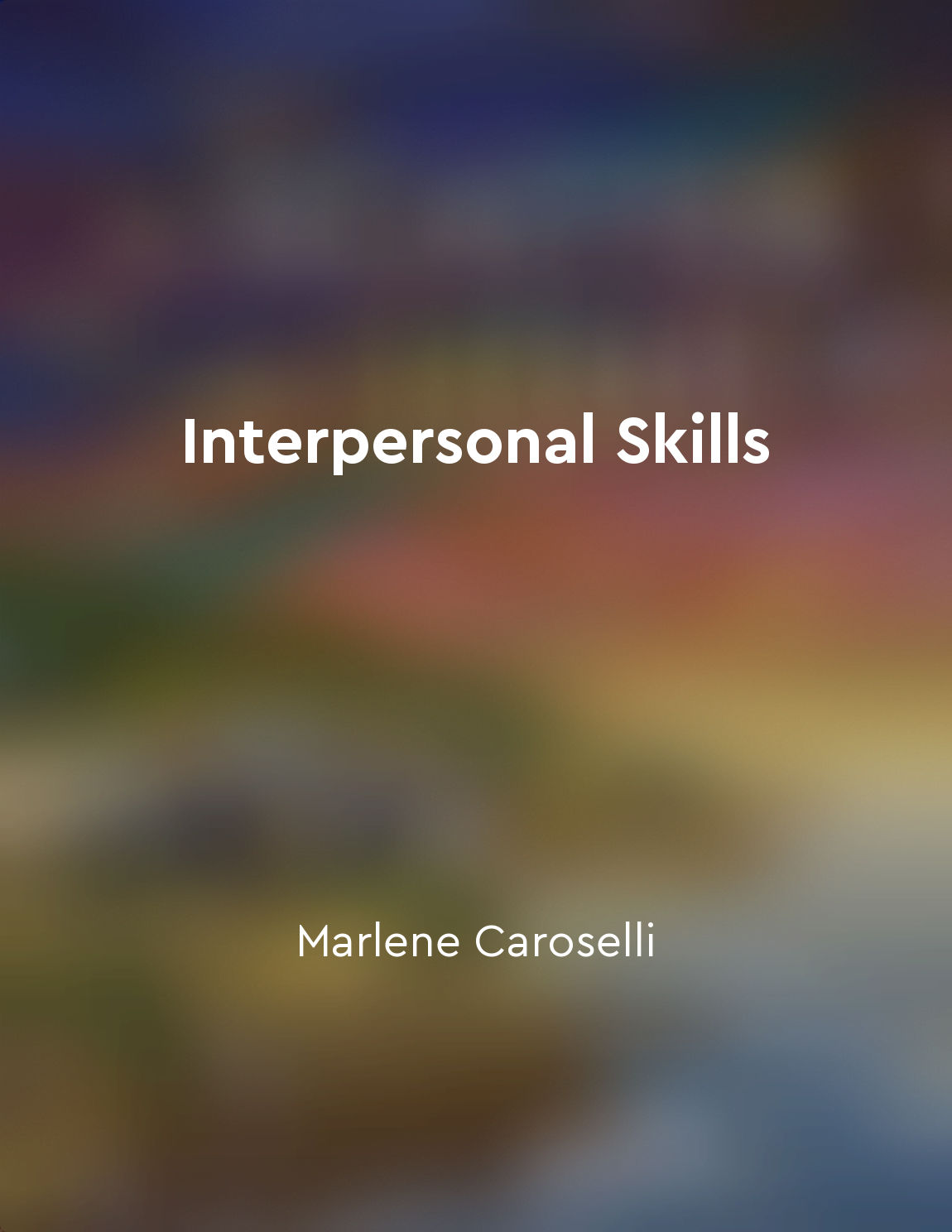Understanding cultural differences is vital in decoding body language from "summary" of What Every BODY is Saying by Joe Navarro,Marvin Karlins
To accurately interpret body language, it is essential to recognize that cultural differences play a significant role in how nonverbal cues are expressed and understood. Different cultures have unique norms and expectations regarding body language, which can vary widely from one society to another. These cultural differences influence the way people communicate through gestures, facial expressions, and other nonverbal behaviors. For example, in some cultures, eye contact is considered a sign of attentiveness and respect, while in others, it may be seen as confrontational or disrespectful. Similarly, the way people use their hands to gesture can convey different meanings depending on the cultural context. In some cultures, gesturing with the palms facing up may indicate openness and honesty, while in others, it may signify submission or weakness. Furthermore, the interpretation of facial expressions can also vary across cultures. A smile, for instance, is generally seen as a positive expression in many Western cultures, indicating friendliness or happiness. However, in some Eastern cultures, a smile can be used to mask negative emotions or discomfort, making it more challenging to accurately decipher its meaning without considering the cultural context. Moreover, body language cues related to personal space and physical contact can differ significantly among cultures. What may be considered an appropriate distance between individuals in one culture might be perceived as too close or too distant in another culture. Similarly, gestures such as handshakes, hugs, or kisses can have varying levels of acceptance and significance depending on the cultural background of the individuals involved.- To decode body language accurately, it is crucial to be aware of these cultural nuances and adapt one's interpretations accordingly. By understanding how cultural differences influence nonverbal communication, individuals can avoid misinterpretations and misunderstandings when interacting with people from diverse cultural backgrounds. Ultimately, this awareness can help improve cross-cultural communication and foster stronger connections between individuals from different parts of the world.
Similar Posts

Embracing diversity is important in communication
At the heart of effective communication lies the ability to embrace diversity. This means recognizing and accepting the differe...
Trust is built on understanding
Trust is a delicate and precious commodity that can only be earned through understanding. It is not something that can be bough...

Building rapport techniques
Building rapport techniques are crucial skills that can help you establish a strong connection with others. These techniques in...
Pay attention to nonverbal cues to better understand others
To truly understand others, one must pay close attention to nonverbal cues. These cues can reveal a wealth of information about...
Mirroring fosters rapport and understanding
Mirroring is a powerful tool that can be used to establish rapport and foster understanding in our interactions with others. Wh...
Know when to disengage from unproductive arguments
It's important to recognize when a debate or argument is going nowhere fast. There are times when it becomes abundantly clear t...

Share personal stories to build rapport
Sharing personal stories is an effective way to connect with others and establish a sense of rapport. When you open up and shar...

Conflict resolution requires effective negotiation skills
Effective conflict resolution often hinges on the ability to negotiate effectively. Negotiation skills play a crucial role in f...
Embracing differences leads to deeper connections
In our relationships, it is crucial to understand that men and women are wired differently. Our brains, hormones, and even our ...
Use transitions to guide the audience
Transitions play a crucial role in guiding the audience through a speech. They serve as signposts that indicate the direction i...

